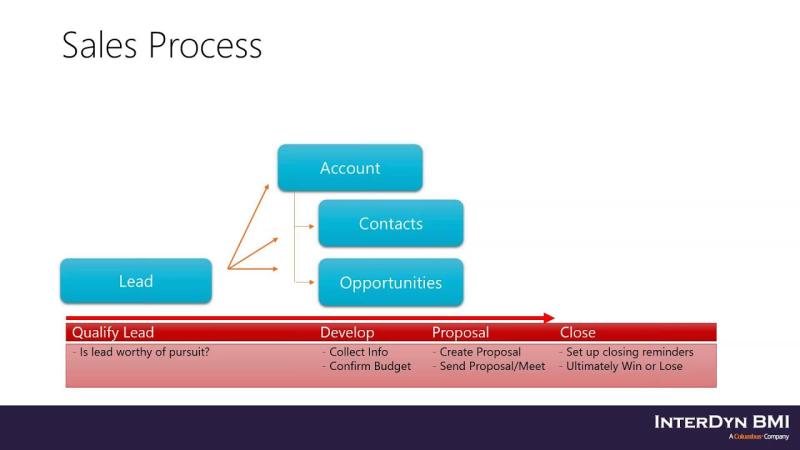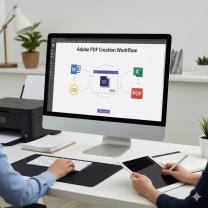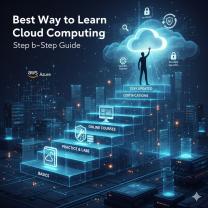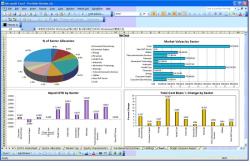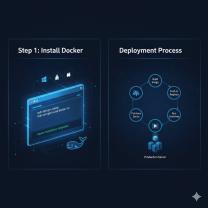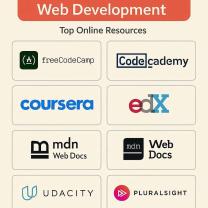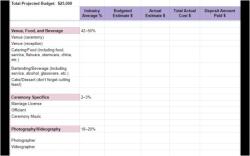What are the main components of Microsoft Dynamics CRM?
Microsoft Dynamics CRM, now known as Microsoft Dynamics 365 Customer Engagement (CE), is a customer relationship management (CRM) platform that helps organizations manage their interactions with customers and prospects. The platform consists of various components that work together to provide a comprehensive CRM solution. Here are the main components of Microsoft Dynamics 365 Customer Engagement:
Sales:
- Leads and Opportunities: Allows tracking and managing potential customers and sales opportunities.
- Accounts and Contacts: Manages information about customer accounts and their associated contacts.
- Product Catalog: Enables the creation and management of product and service offerings.
Customer Service:
- Cases: Tracks and manages customer service requests or issues.
- Knowledge Base: Stores and organizes articles and information to assist in issue resolution.
- Service Level Agreements (SLAs): Defines and manages service level expectations for issue resolution.
Marketing:
- Marketing Lists: Helps in creating and managing lists of marketing targets.
- Campaigns: Tracks and manages marketing campaigns and their outcomes.
- Marketing Automation: Automates marketing processes, such as lead nurturing and email marketing.
Field Service:
- Work Orders: Manages service requests, work orders, and scheduling of field service activities.
- Resource Scheduling: Optimizes resource allocation and scheduling for field service activities.
- Inventory Management: Tracks and manages inventory related to field service operations.
Project Service Automation:
- Projects: Manages and tracks customer projects, including project planning and resource allocation.
- Resource Management: Optimizes resource utilization for project service activities.
- Time and Expense Management: Tracks and manages project-related time and expenses.
Business Intelligence and Reporting:
- Dashboards: Provides visual representations of data and key performance indicators (KPIs).
- Reports: Allows the creation and customization of reports based on CRM data.
- Charts and Views: Provides configurable charts and views for data analysis.
Dynamics 365 Portals:
- Web Portals: Extends CRM capabilities to external users, such as customers or partners, through web portals.
- Knowledge Base Integration: Integrates knowledge base articles for self-service support.
Integration and Customization:
- Custom Entities: Enables the creation of custom data entities to meet specific business needs.
- Plug-ins: Allows developers to extend and customize the platform's functionality through custom code.
- Web Services: Facilitates integration with external applications and services.
Security and Access Control:
- Security Roles: Defines roles and permissions for users.
- Field-Level Security: Controls access to specific fields within CRM records.
- Business Units: Organizes users and data based on business unit structures.
Workflow and Business Rules:
- Workflows: Automates business processes by defining a series of steps.
- Business Rules: Defines logical conditions to guide user behavior and data entry.
These components work together to provide a unified CRM solution that helps organizations streamline their sales, marketing, and customer service processes while allowing for customization to meet specific business requirements.
Understanding the system: What are the main components of Microsoft Dynamics CRM?
Microsoft Dynamics CRM is a customer relationship management (CRM) software suite that helps businesses manage their customer interactions and relationships. It is a cloud-based platform that offers a variety of features and modules to help businesses track leads, manage sales, provide customer service, and market to customers.
The main components of Microsoft Dynamics CRM include:
- Sales: The Sales module helps businesses track leads, manage opportunities, and close deals. It includes features such as lead qualification, contact management, opportunity management, and quote generation.
- Customer service: The Customer service module helps businesses provide customer support. It includes features such as case management, knowledge base, and self-service portal.
- Marketing: The Marketing module helps businesses create and manage marketing campaigns. It includes features such as lead generation, email marketing, and marketing automation.
- Field service: The Field service module helps businesses manage their field service operations. It includes features such as work order management, scheduling, and mobile access.
- Project service automation: The Project service automation module helps businesses manage their project services. It includes features such as project planning, time tracking, and invoicing.
In addition to these core modules, Microsoft Dynamics CRM also offers a variety of add-on modules and solutions that can be used to meet the specific needs of different businesses. For example, there are add-on modules for social media integration, e-commerce, and business intelligence.
Overview of the key modules and components within the Microsoft Dynamics CRM system
Here is a more detailed overview of the key modules and components within the Microsoft Dynamics CRM system:
Sales module:
- Lead qualification: The Sales module helps businesses qualify leads by providing information about their demographics, behavior, and interests. This information can be used to determine which leads are most likely to convert into customers.
- Contact management: The Sales module helps businesses manage their customer contacts. This includes storing contact information, tracking interactions, and managing relationships.
- Opportunity management: The Sales module helps businesses manage their sales pipeline. This includes tracking opportunities, managing sales stages, and forecasting sales.
- Quote generation: The Sales module helps businesses generate quotes for potential customers. This includes creating quotes, sending them to customers, and tracking their status.
Customer service module:
- Case management: The Customer service module helps businesses manage customer support cases. This includes creating cases, tracking their status, and resolving them.
- Knowledge base: The Customer service module provides businesses with a knowledge base where they can store and share information about their products and services. This information can be used to help customer support representatives resolve cases more quickly and efficiently.
- Self-service portal: The Customer service module provides businesses with a self-service portal where customers can access information and support without having to contact customer support.
Marketing module:
- Lead generation: The Marketing module helps businesses generate leads by creating and managing marketing campaigns. These campaigns can be targeted at specific demographics, interests, and behaviors.
- Email marketing: The Marketing module allows businesses to create and send email marketing campaigns to their leads and customers.
- Marketing automation: The Marketing module automates marketing tasks, such as lead nurturing and email marketing. This can free up marketers to focus on more strategic tasks.
Field service module:
- Work order management: The Field service module helps businesses manage their work orders. This includes creating work orders, scheduling them to field technicians, and tracking their status.
- Scheduling: The Field service module helps businesses schedule field technicians to work orders. This includes considering factors such as the technician's location, skills, and availability.
- Mobile access: The Field service module provides field technicians with mobile access to work orders and other information. This allows them to stay informed and productive while in the field.
Project service automation module:
- Project planning: The Project service automation module helps businesses plan their projects. This includes creating project schedules, identifying resources, and defining tasks.
- Time tracking: The Project service automation module allows businesses to track the time spent on tasks. This information can be used to invoice customers and to track project progress.
- Invoicing: The Project service automation module allows businesses to invoice customers for their project services.
Tips for users and administrators on navigating and utilizing these components effectively
Here are some tips for users and administrators on navigating and utilizing the components of Microsoft Dynamics CRM effectively:
- Use the navigation bar: The navigation bar at the top of the screen provides quick access to all of the modules and components in Microsoft Dynamics CRM.
- Use the search bar: The search bar at the top of the screen can be used to find specific records and information in Microsoft Dynamics CRM.
- Use views: Views allow you to filter and sort data in Microsoft Dynamics CRM. This can help you to find the information you need more quickly and easily.
